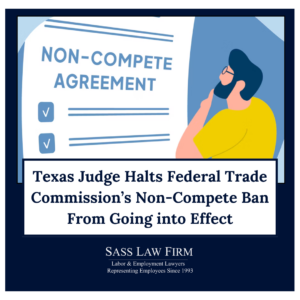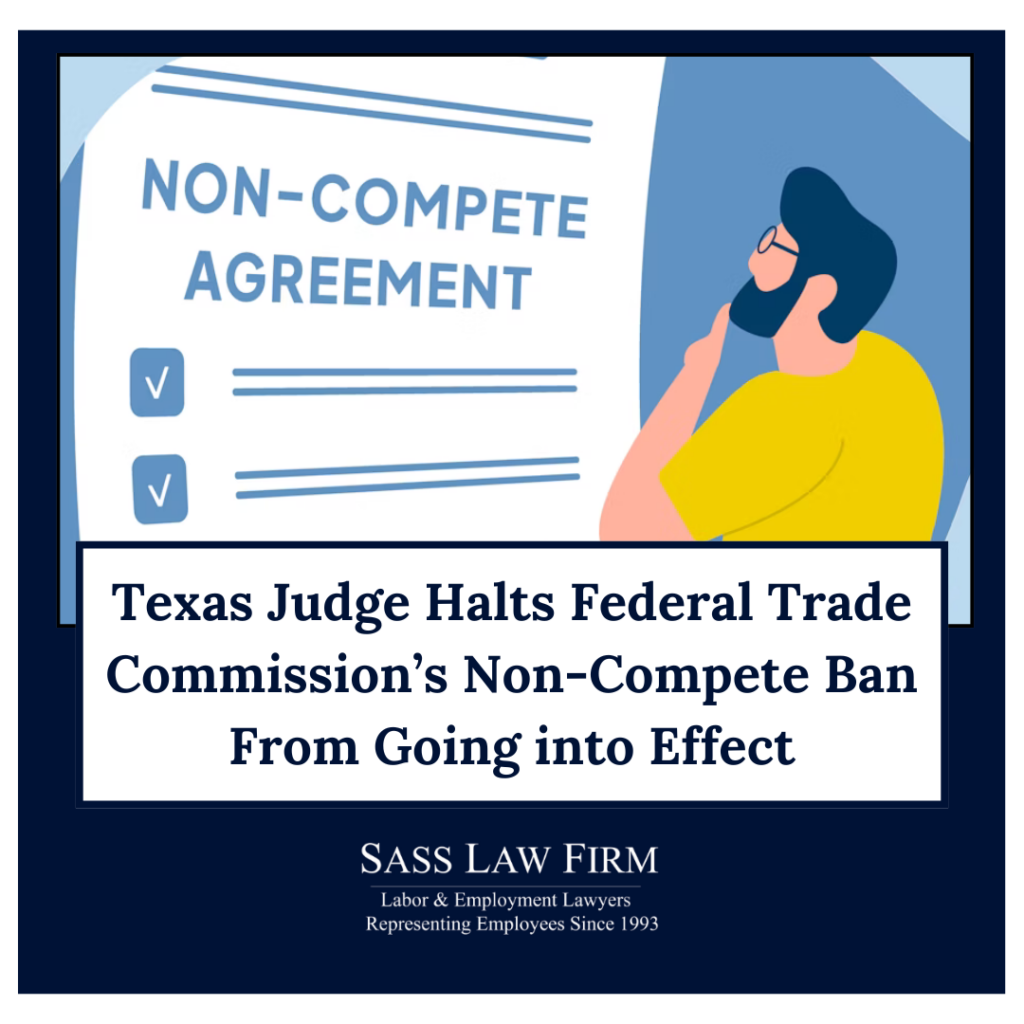 In a landmark move, in April 2024, the Federal Trade Commission (FTC) introduced its final rule banning almost all non-compete agreements, a decision that will dramatically reshape the American labor landscape. This nearly all-encompassing ban is a fundamental shift towards a more equitable labor market.
In a landmark move, in April 2024, the Federal Trade Commission (FTC) introduced its final rule banning almost all non-compete agreements, a decision that will dramatically reshape the American labor landscape. This nearly all-encompassing ban is a fundamental shift towards a more equitable labor market.
The upcoming non-compete ban was originally scheduled to go into effect on September 4, 2024. However, last week on July 3, 2024, a Texas federal court judge temporarily blocked the rule’s enforcement specifically to parties in their case. Although this decision did not implement a nationwide block, the Court anticipates deciding whether the final rule is enforceable at all on or before August 30, 2024, and, if so, when the non-compete ban might eventually take effect. This decision may lead to further appeals to the U.S. Supreme Court to determine the FTC’s authority in implementing such rules. Thus, the ultimate question remains whether the ban is enforceable.
Understanding Non-Compete Agreements
Non-compete agreements are contracts that restrict employees from working for competitors or starting a competing business within a certain time frame and geographical area after leaving a company. Originally designed to protect trade secrets and prevent unfair competition, these clauses have become increasingly common across various industries, affecting a significant portion of the workforce. However, the increasing prevalence of non-competes has sparked debate about their fairness and necessity.
Does This Rule Impact Me?
If the FTC’s new rule goes into effect, it will apply to all workers. However, if you are a senior executive in your company, the rule will affect you slightly differently.
Impact on Workers
If the rule goes into effect, there will be huge implications for every worker. This includes paid workers, unpaid workers, employees, independent contractors, externs, interns, volunteers, apprentices, sole proprietors who provide services to a person, individuals who work for franchisees or franchisors, etc. In other words, almost every worker will be affected by the new ban on non-competes.
Assuming the non-compete ban will go into effect, all new non-competes will be prohibited. This means that you cannot be required to enter into a non-compete agreement. Additionally, beginning on its effective date (which was supposed to be September 4, 2024), all previously existing non-competes will be void—meaning your employer cannot enforce it against you.
Impact on Senior Executives
Senior executives will be affected by this new rule differently than other workers. Senior executives are defined as workers who earned more than $151,164 the previous year and also had policy-making authority, such as a president or other senior officer of a similar status.
If you are a senior executive, then beginning on September 4, 2024, all new non-competes will be prohibited. This means that you cannot be required to enter into a new non-compete agreement. However, if you are a senior executive who has an existing non-compete agreement before September 4, 2024, then that non-compete will remain effective against you.
Are There Any Exceptions to This Rule?
Yes, however, the exceptions are very limited and require additional circumstances that are likely not applicable to most workers. These exceptions include:
- When a person sells their business.
- Where there is a lawsuit relating to a non-compete agreement created before September 4, 2024.
- When a person happens to misunderstand this rule in good faith.
If these limited exceptions do not apply to you, then an employer must comply with the FTC’s new rule.
To stay up to date on this rapidly evolving situation, contact experienced non-compete attorneys like the attorneys at Sass Law Firm. Sass Law Firm has been representing Tampa Bay workers in non-compete disputes since 1993.

